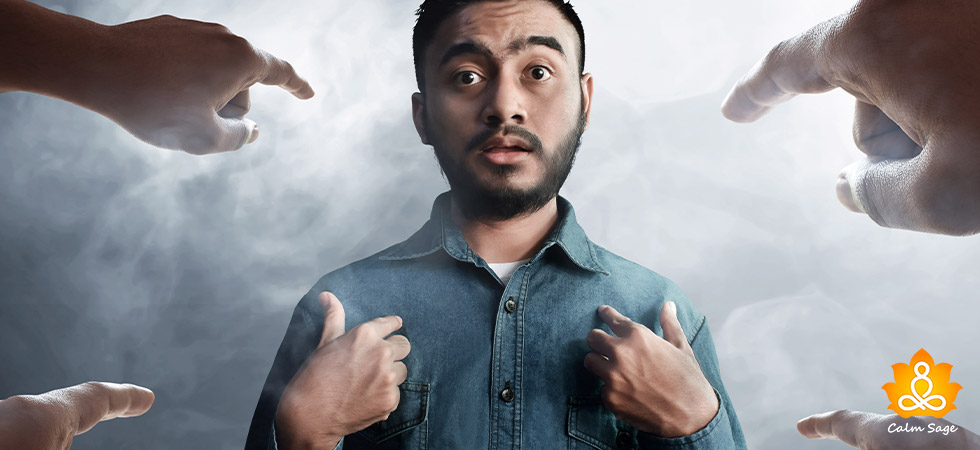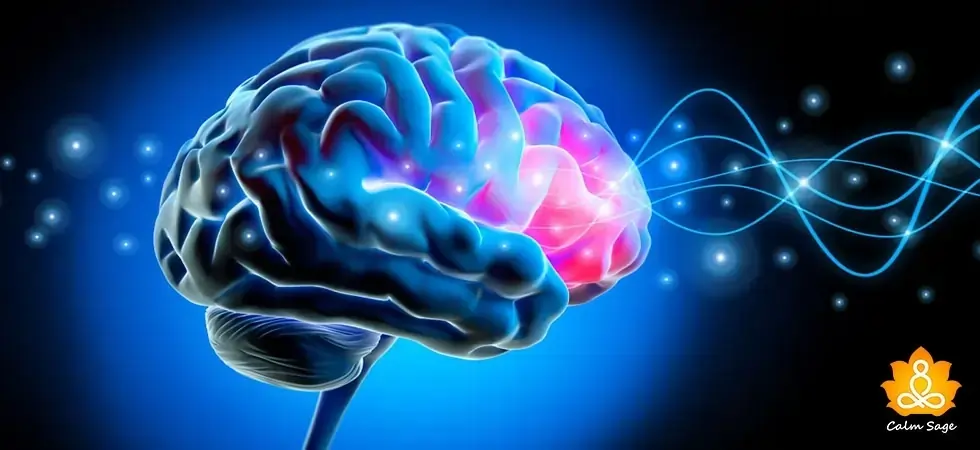“It’s All My Fault” | Why You Blame Yourself For Everything And How to Stop

Many of us experience this constant sense of self-blame, where we feel responsible for everything that goes wrong in our lives or even in the lives of others around us. This constant self-blame and feeling you’re at fault can be emotionally draining and can affect your well-being.
Now, if you’re one whose default thought when something goes wrong is, “Everything is my fault” then you’re not the only one. This thought can be a direct hit to your self-esteem and can make it harder for you to feel good about yourself. After all, how can you be good, when everything is your fault!?
This reasoning is not sound and I know it’s hard to think otherwise, but for your confidence’s sake, you need to break this cycle, because believe it or not, not everything is your fault nor does the blame lie at your doorstep all the time.
So, how to do it? How to stop self-blame from affecting your well-being? Let’s explore some of those ways in this article!
The Psychology of Self-Blame

Self-blame is a concept that is deeply rooted in our psyche and can stem from various factors, including our childhood experiences, social expectations, and core beliefs we hold for ourselves. More often than not, these experiences shape how we view ourselves and contribute to the different relationships we have in our lives.
If we talk about childhood experiences, parental criticism or high expectations placed upon a child can be the first warning signs of self-blame. When you grow up in an environment where mistakes are harshly punished and where you’re made to feel responsible for arguments and fights, then this conditioning can contribute to your sense of self-blame and you may begin to believe that you’re at fault for everything in your life and relationships.
Sometimes, though, it is our irrational beliefs that can influence our negative perceptions. Cognitive distortions such as personalization and overgeneralization can be related to self-blame. And other times, self-blame becomes a coping mechanism to gain a sense of control over a situation that brings overwhelming emotions to the surface.
Why Do You Believe Everything is Your Fault?
Other factors that can contribute to your tendency to self-blame can include;
-
Anxiety Disorders
Anxiety disorder symptoms such as overthinking, excessive worrying, and imagining the worst-case scenarios can be a sign that you’re used to taking all the blame for yourself. Even if you do nothing wrong, you may begin to feel that it’s all your fault. Because you can’t control what’s happening around you, it’s easy to take the blame, because that’s what your anxiety tells you.
-
Obsessive-Compulsive Disorder (OCD)
Another disorder that can make you feel like everything is your fault is OCD. OCD can cause you to accept blame for something that is out of your control. This can be a subset of OCD as well, known as “responsibility OCD”. This subset of OCD causes you to fixate on the repercussions of your actions or inaction and how they might affect others.
-
Depression
When you’re depressed or have symptoms of depression, then it’s common to have feelings of low self-worth and self-loathing. You may find that taking the blame and thinking that everything is your fault becomes more or less a default. Moreover, when you’re depressed, you don’t have the energy to set boundaries and fight, so taking the blame for things that are not your fault becomes easier.
-
Low Self-Esteem
If you have low self-esteem or self-image, then you may also feel that everything is your fault. This is because you hold a belief that you’re not enough and with time, you begin to believe this falsehood about yourself. You may begin to overthink and over-analyze everything and at the end, you’ll conclude that everything must be your fault because you failed to be good enough.
-
Perfectionism
Like it or not, perfectionism is another factor that can make you feel like you’re at fault, always. Perfectionism means that you have high expectations of yourself and when you fail to meet them, you spiral into an all-or-nothing mindset that may eventually lead you to self-blame for your failure.
How to Stop Self-Blame?
1.Take Responsibility Instead of Blame
To stop the self-blame game, you need to learn the difference between taking responsibility and blaming yourself for something. Taking responsibility is a good thing as it allows you to acknowledge your mistakes and atone for them. However, when you mix responsibility with blame, it becomes an evil concoction.
Instead of blaming yourself for everything or believing that everything is your fault, start taking responsibility for them instead. It’s not just you in the relationship after all, right? So, accept that and once you take responsibility for your part, you just have to wait for the other person to do their part.
2.Learn to Be Self-Compassionate
Self-compassion can go a long way to healing this thought process that everything is your fault. If you want to change your stance from self-blame to taking responsibility, then you need to learn to be kind to yourself. It’s not always easy to be kind to oneself, so here’s how you can begin;
- Start a journal and list at least three things you find positive about yourself
- Write a letter to yourself…as a friend
- Engage in self-soothing activities for yourself without feeling guilty about it
- Speak to yourself as if you were giving yourself a pep talk
3.Seek New Perspectives
Sometimes, the worst place you can be is your mind. So, to stop self-blame, you need to get out of your head and seek others’ perspectives. Share what’s on your mind with your loved ones to understand where your self-blame tendency is coming from. Once you have new perspectives on a perceived-guilty situation, you can change your stance.
4.Seek Professional Support
Sometimes, you will be at fault, but other times you won’t be. This can make for a very confusing situation when you don’t know when to feel guilty and when to not. In such situations, seek help from professionals. A therapist can help you understand what’s causing you to feel like everything is your fault and what can you do to stop this from happening.
Wrap-Up
While taking responsibility for your actions is an admirable act, it differs from self-blame. Self-blame is a concept that’s rooted in our psyche and can have various sources including traumatic childhood experiences, social expectations, mental health disorders, and more. Knowing what causes self-blame can help you address and combat this thought better.
You are not responsible for others’ actions or inaction. You don’t own the world anything and if something does not go right, then it doesn’t mean it’s your fault. Sometimes, things happen without reason and no one is to blame. That’s life.
So, if you’ve been thinking, “Everything is always my fault” then I hope this blog helped you get some clarity on what causes this thinking and what to do about it.
Do you take the blame for everything or feel like everything is your fault? How do you combat this thinking? Let me know in the comments below. You can also share your thoughts with us at info@calmsage.com.
Take Care!




















